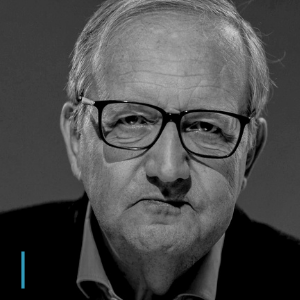The most recent new measures announced by the National Security Council have met with a lot of resistance. Something about their approach clearly isn’t working. The problem isn’t their medical scientific approach, but their communicative political approach. The very limited view of humans used in public discourse is why things are going wrong, and this illustrates the structural empathetic shortcomings of power-political thinking. What is the solution?
Last week, the Scientific American Health & Medicine published an interesting article by Leslie Zane titled ‘To Flatten the COVID-19 Curve, Target the Subconscious’. Zane’s core message was that the development of a good marketing strategy is a must to convince people to adhere to social distancing guidelines. Marketing means tapping into and working with existing human relations.
It’s easier to persuade people to change their behaviour in the way we’re asking them to do in these corona times if you use the existing intrinsic associative networks that engender trust. Every one of us has developed such connective networks over the course of our day-to-day lives. Zane calls these neural networks “Brand Connectomes”. In this way, a brand becomes a metaphor for a relationship. The notion of a brand is to be interpreted broadly here and can encompass celebrity Flemings and TV shows as well as Internet memes and influencers.
President Macron is an example of such a “brand”: he is one of few people to have used his brand for communicative purposes during this corona crisis. You could argue the opposite of the ‘Trump’ brand – Trump uses his heuristic network to sow doubt and uncertainty and to undercut the medical rationale behind the measures.
Since we don’t have any such dominant “leader” brands in the Flemish or Belgian context, a broader array of connectomes must be activated. This lack of mental leadership and this absence of a communication strategy has become painfully evident over the last few days. For want of a civic leader, medical scientists have become specialists in every subject – in the economy, physical exercise, sociology, repression and more. During the Middle Ages, there was nothing strange about a Homo Universalis. The knowledge we’ve acquired since then has resulted in many more possibilities in many areas. We owe it to ourselves to work out a multidisciplinary approach integrating the best available contributions in response to our current existential crisis. A government that communicates better with its citizens is urgently needed. But how can this be achieved? The above-mentioned article points us in the right direction.
Zane supports her argument with references to the concept of the “human connectome”, as described in the work of the Nobel Prize winner and psychologist Daniel Kahneman. In his work he demonstrated how “heuristics” or accumulated associations – emotional or other – stand in the way of rational decisions. We have for instance long known that certain “beliefs” held by religious sects stand in the way of rational decision-making. Only when the communicative codes and reference points – for instance, a person’s father, mother and friends – are taken into account and activated can people be made to take rationally based decisions.
That means that sufficient positive associations must be invoked to get people to adapt their behaviour. To flatly prohibit something won’t work. Nor is it helpful to organise counts that are “too” global and in which vague indications of supposed corona deaths are also tallied. Such masochism might energise individual scientists, but it does not help the “state of mind” of a society to persevere.
In modern communication whoever is able to offer the most and the best positive associations will win from whatever the alternative is, in this case, passive resistance. The required positive associations can be communicated by making better use of the full technical marking spectrum – from creative vocabulary, sounds and faces, to people and images. In short, everything that helps the neural network adopt positive associations. It’s of course vital that a strategic approach be taken to the full entirety of the messaging of the government and other actors. It’s clear that no-one is keeping an overview at the moment; nor is anyone steering the ship.
Such a deliberate marketing strategy has not accompanied the corona measures for the most part at the moment. Bans have remained limited to a cognitive set of arguments, with no positive eliciting of the emotionally advantageous aspects associated with the measures. This has produced confusion, protests and resistance. Belgium is trapped between following the example of France and its strong Macron brand – which we do not have – and the Dutch group dynamic approach – for which we lack the discipline. We need a clear and coherent government communication strategy. This is not merely something that’s desirable. We are after all asking people to make an enormous effort; we’re asking them to drastically change their lives. Nothing they have done until now and none of the habits they have acquired were exclusively based on rationality. And now we want them to completely set aside these habits purely based on ratio – a message delivered by scientists with little empathy for normal, day-to-day life. This is as good as impossible. Consider, for instance, that more than 100 studies have shown that less than 30% of patients on average follow the therapeutic instructions of their doctors. Efforts to make drugs affordable and easy to take do not suffice. “Psychosocial factors” are what’s standing in the way: habits, social context, attitudes and motivations. In the case of corona, the whole thing is made even worse by the fact that recommendations from doctors to their patients to adjust their lifestyles are observed the least: just 20% of patients are willing to go along with them. We are currently asking the entire population to make such lifestyle changes. It should not come as a surprise that this request is being met with more than a little bit of resistance.
At its essence, the model of Western society is precisely about living together with others with respect for each other’s free will. We debate, we argue our case to find a common ground in mutual respect for scientific findings. Once that foundation has been established, we communicate it as best is possible, both rationally and emotionally. Continuous and permanent dialogue is what distinguishes the free – Western – world from dictatorial regimes. Of course limits exist. In order to protect society, the outer limits are to be checked by the police – albeit in symbiosis with permanent dialogue.

